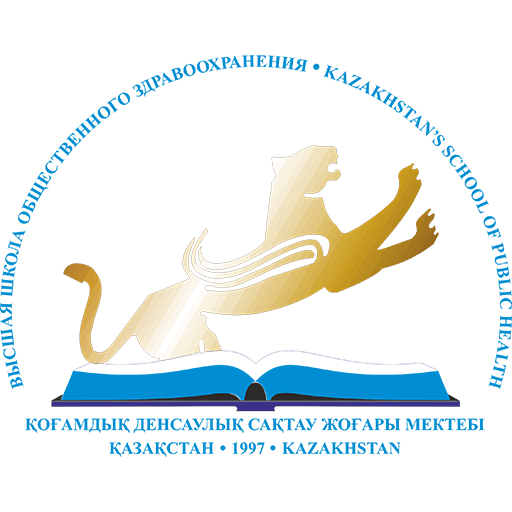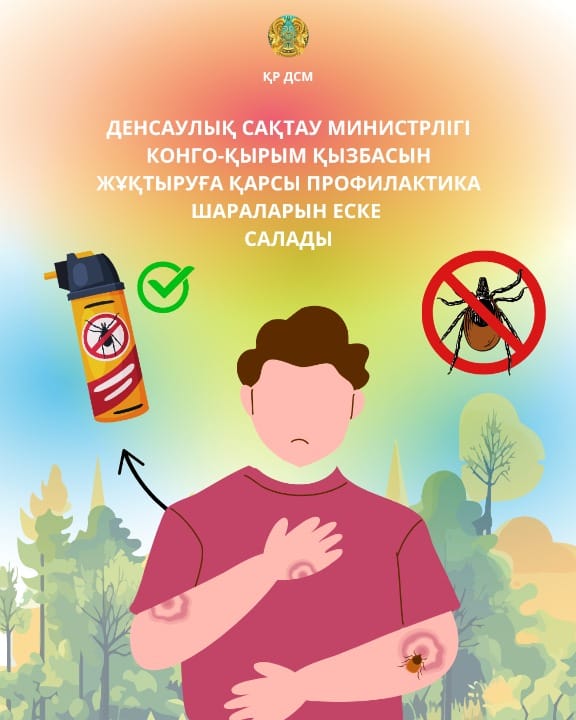Due to the seasonal rise in tick activity — known carriers of dangerous diseases — the Ministry of Health urges the public to strictly follow precautionary measures when outdoors and when caring for domestic animals.
Crimean-Congo Hemorrhagic Fever (CCHF) is a dangerous viral disease primarily transmitted through tick bites.
To prevent infection, it is recommended to:
• Use tick-repellent sprays and wear protective clothing;
• Inspect your skin and clothing daily;
• Avoid contact with animal blood without proper protection;
• Treat animals and livestock facilities for ticks, especially in endemic areas.
Currently, there is no vaccine against CCHF. Since delayed treatment can lead to fatal outcomes, it is critical to seek medical attention immediately after a tick bite.
Do not attempt to remove ticks by yourself!
Endemic areas in Kazakhstan include Zhambyl, Kyzylorda, Turkestan regions and the city of Shymkent, where natural foci of CCHF persist due to the presence of ixodid ticks that infest both wild and domestic animals.
The peak of tick bite incidents typically occurs in May–June, with annual reports ranging from 7,000 to 15,000 cases.
This year, 434 people have already sought medical assistance in endemic regions due to tick bites.
As a preventive measure, sanitary and epidemiological services have established protective zones around 149 high-risk localities.
354,830 heads of livestock have undergone anti-tick treatment, and 155 villages have seen livestock facility disinsection efforts.
Stay informed via our website: https://ksph.edu.kz/ and on our Telegram channel Mediclub.


